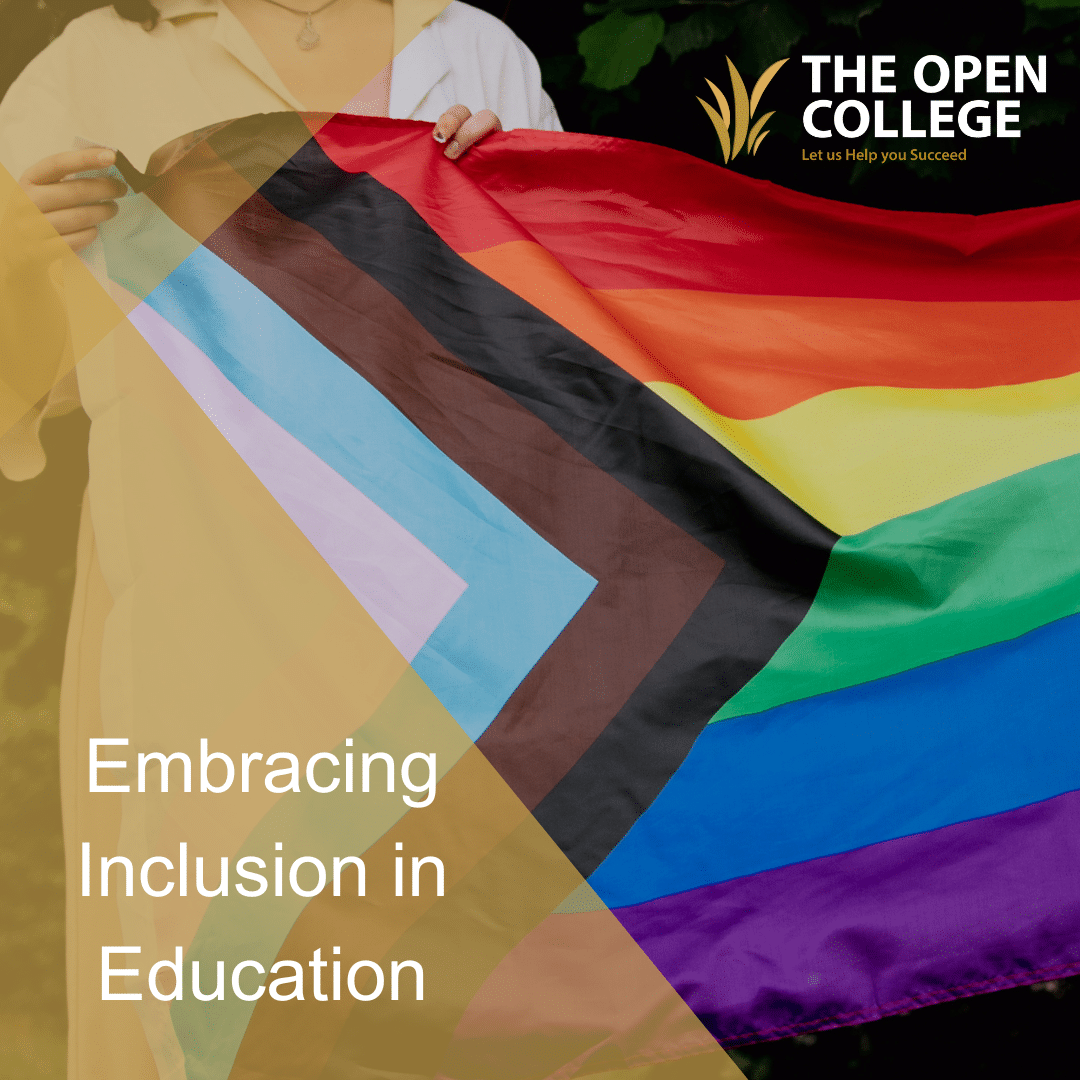Embracing Inclusion in Education
Education plays a pivotal role in shaping society’s values and beliefs. So, to build a more inclusive and accepting world, it is essential that educational institutions prioritise LGBTQ+ inclusion.
Inclusive education provides a platform for fostering acceptance and empathy among students. By integrating LGTBQ+ topics into curricula, schools can challenge stereotypes, debunk myths and promote understanding. Teaching students about diverse sexual orientations and gender identities cultivates a culture of respect, tolerance and compassion. When students learn about LGBTQ+ issues, they are more likely to become allies and advocates, dismantling discrimination and fostering a supportive environment.
Educational institutions should be safe havens for all students, regardless of their sexual orientation or gender identity. LGBTQ+ inclusive policies and programmes help create safer spaces where students can express themselves authentically without fear of bullying or exclusion. Implementing anti-discrimination policies, establishing gender neutral facilities and providing LGBTQ+ affirming resources and services, sends a powerful message of acceptance.
These measures, not only protect LGBTQ+ students but also educate peers in an environment that celebrates diversity.
Inclusive education empowers LGBTQ+ students by providing them with role models, resources and support. By integrating LGBTQ+ history, literature and contributions into the curriculum, students gain a deeper understanding of the community’s resilience and achievements.
When LGBTQ+ students see their identities represented and respected within the educational system, they are more likely to succeed academically and develop a positive self-image.
Training teachers on LGBTQ+ issues equips them with the knowledge and tools to create an inclusive learning environment.
It also encourages educators to examine their own biases (see our previous blog on Unconscious Bias in Education), challenge assumptions and address unconscious discrimination. By nurturing cultural competence, schools and higher education institutions prepare students for diverse society and empower them to become future leaders who champion equality and social justice.
LGBTQ+ inclusion in education goes beyond curriculum content, it includes creating safe spaces, empowering students and fostering cultural competence. By ensuring inclusion of the LGBTQ+ community, educational institutions take a vital step towards nurturing a generation of empathetic and accepting individuals who embrace and celebrate diversity.

